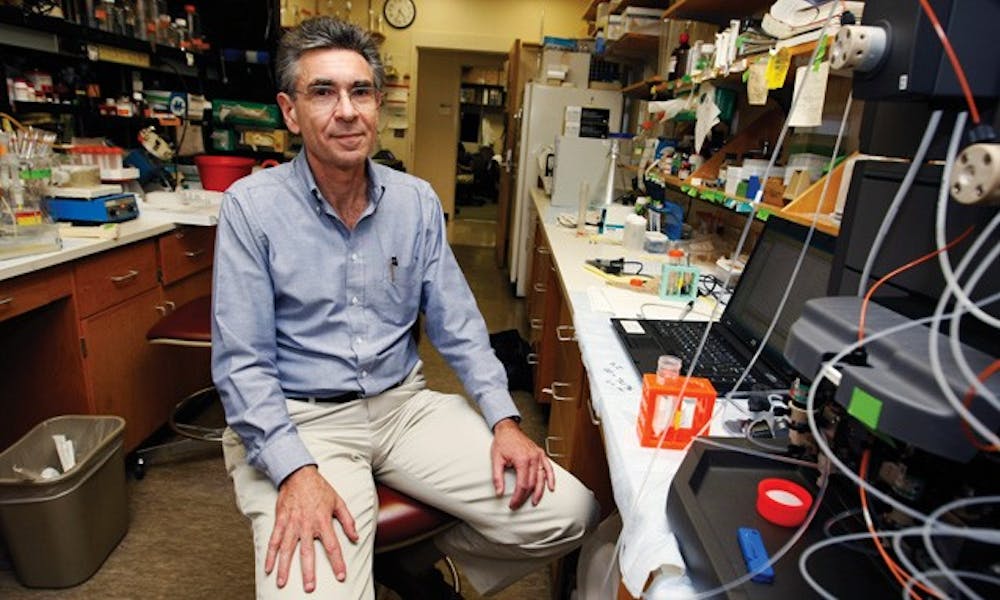Describing Robert Lefkowitz’s research journey is like tracing the construction of a house.
“I’ve always had in my lab an overarching vision of what I was trying to do,” he said. “We continue to put floors on the building; there’s never been any kind of discontinuity since we started.”
This particular house, however, has a rather unusual foundation: cellular receptor biology. That’s what Lefkowitz, James B. Duke professor of biochemistry and a Howard Hughes medical investigator at Duke University Medical Center, has been studying at Duke since the late 1960s.
In particular, Lefkowitz’s research focuses on the cell’s plasma membrane receptors—the highly conserved proteins that regulate virtually every physiological process in humans. A whopping 40 percent of all modern medicinal products target these tiny receptors, putting Lefkowitz and his research at the forefront of a major pharmaceutical quest for better drugs.
In January 2008, Lefkowitz and his colleague Howard Rockman, DUMC chief of the division of cardiology, co-founded Trevena, a drug discovery company that develops pharmaceuticals targeting a particular family of these membrane proteins called G protein-coupled receptors. By many accounts, the young company seems promising. Trevena was named one of the most successful U.S. startups in 2008 by Business Week, and in 2009, received an extremely competitive stimulus package grant from the National Institutes of Health, which funds $7.65 million dollars for two years.
In drug discovery, targeting GPCRs is a logical choice—by regulating almost everything, they are bound to be involved in some disease symptoms, and their unique conserved structure seems to make them particularly “druggable.”
Trevena is Lefkowitz’s first commercial venture, and although his academic research is interconnected with the company, Lefkowitz says the two entities have different emphases.
“My academic lab is the enterprise in which I channel most of my energies—it is devoted to making basic discoveries,” he noted. “But once an idea is ripe enough that it could possibly serve as a platform for drug development, it’s got to go into the private sector.”
For Lefkowitz, military service sparked the insatiable curiosity that has driven his research program through the years.
“I started to get the [research] bug when I had to go into the armed services—the U.S. Public Health Service—at the height of the Vietnam War,” he recalled.
That was 40 years ago—a time when receptor biology was truly in its infancy, when most people “didn’t even believe receptors existed.” Now, Lefkowitz can reflect on a research program that has ultimately structured a blueprint for the field of receptor biology, elucidating some of the molecular properties and regulatory mechanisms that govern plasma membrane receptors for hormones and drugs. And he is pushing ahead, he says, with the same fascination that has driven him all these years.
“One of the things I pride myself on is that you can take experiments going on in our lab now, and if you look at our lab books, you can trace back every experiment now to the experiments in 1973,” he said. Lefkowitz notes that his medical training and continuous research focus may not be the norm in research. But then again, neither are the heap of awards he’s racked up in his career—including the National Medal of Science, the Shaw Prize, and more than 60 others—nor his recent startup success in pharmaceutics.
“I guess the key [to research success] is to be passionately interested in an important problem—something you really want to know the answer to,” he said. “Here I am 40 years later. What I’m doing has evolved, but I’m just as interested.”
Get The Chronicle straight to your inbox
Signup for our weekly newsletter. Cancel at any time.

